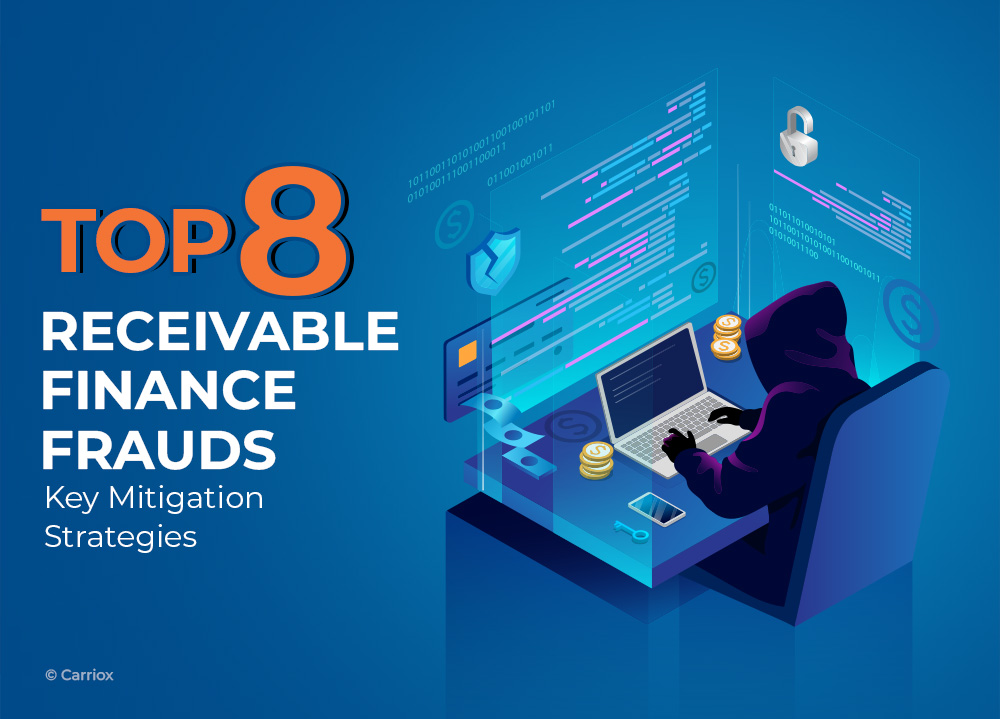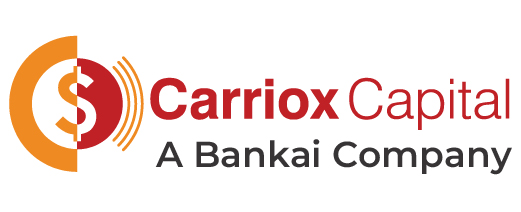Top 8 Receivable Finance Frauds: Key Mitigation Strategies

As 5G networks are hitting the mainstream, the global telecom industry is planning to augment and strengthen telecom infrastructure by adding hundreds of thousands of 5G cell towers. This push implies increasing the responsibilities and workload of cell tower construction companies. In such circumstances, invoice financing for cell tower construction is an apt solution to maintain a consistent cash flow while keeping pace with the company’s funding needs.
However, the growth of account receivables financing for cell tower construction is proving irresistible to fraudsters keen to exploit the market. UK’s National Crime Agency and The North East Business Resilience Centre (NEBRC) have warned contractors and construction companies of invoice frauds estimated to cost the UK economy more than £100 million ($120.85 million) annually.
Frauds related to asset-based financing solutions, such as factoring and supply chain finance, are difficult to detect. However, as discussed in this blog, you can avoid fraud by implementing prevention best practices for different telecom invoice factoring frauds.
What is Receivables Financing?
Receivables financing is when businesses sell their outstanding invoices to receive funding from an invoice factoring company. It helps companies meet their daily operational expenses by bridging the gap between cash shortages. With steady cash flow, companies can stop worrying about making payroll and running into tax and credit issues.
Account Receivables Financing for Cell Tower Construction
Cell tower companies typically have payment agreements of 30 days with their customers, mostly telecom service providers. Besides, they must pay their crews, insurance, daily operating costs, and equipment vendors. It often causes cash flow stress where invoice financing for cell tower construction comes to the rescue. Along with quick invoice loan disbursal, specialists in invoice factoring companies can offer accounts receivable (A/R) management expertise and credit risk analysis for the telecom industry.
Types of Telecom Invoice Factoring Frauds and How to Prevent Them
Following are some most common accounts receivable frauds, along with red flags and best practices to help you avoid them.
-
Lapping and Check Kiting
Lapping involves fudging of A/R records to hide the stealing of payments. Accounts receivable specialist or manager steals the customer payment and uses the next payment to cover the theft.
Check kiting is when perpetrators build up an unauthorized balance in one bank by writing hot checks from another. They take advantage of the float period and involve over two banks to keep the fraud scheme going.
Here, complaints from clients receiving false non-payment notices can be a red flag. Companies must implement safeguards like reconciling cash receipts regularly, issuing monthly customer account statements, marking checks with ‘For Deposit Only’, etc.
-
Skimming
Skimming sales receipts and refunds involves employees pocketing the funds meant for the company. The employee receives customer cash, records the payment, and charges an expense amount to cover the pocketed money. Due to a lack of segregation of financial duties, employees can conceal their activities easily.
For this type of fraud, the company must look out for an excessive number of discounts, returns, employee reimbursements, and increased expenses on items. Experts recommend allocating every accounting function to at least two employees to dissuade misconduct.
-
Fraudulent Write-offs
Employees may create false write-offs to cover up their previous thefts, like skimming and lapping. They can do so by crediting an account for a return, discount, or another type of write-off.
Like skimming, a company must watch for anomalies in the number of voids, discounts, returns, and other modifications.
-
Fictitious Sales
Some employees, like salespeople working on a commission, can benefit from inflation in accounts receivable, as it shows an increase in sales. Apart from receiving commission-based compensations, fictitious sales show the company in better financial shape for investors and creditors. To make this work, a person in charge of accounts receivable intervenes to manipulate records.
Here, a red flag can be an unexpected surge in revenues. You can detect such fictitious sales by comparing sales with revenue, total assets, shipping costs, etc.
-
Bogus Statements
Bogus statements involve an employee revising a business statement to hide the stolen money. Fraudsters make tiny and simple changes to the statement that no one realizes that funds have been taken from the company.
While it’s difficult to detect such frauds, periodic external audits, employee awareness around warning signs, and reporting can help in the long run to avoid them.
-
Payment Diversion
Payment diversion is a lucrative fraud scheme that uses slow-paying accounts that are not being tracked. It involves redirecting the incoming cash from such old and slow-paying accounts. If a business writes off uncollectible bad debts, then an employee can keep any funds from such an account.
Sudden activity in such long-dormant accounts can indicate suspicious activity.
-
Wire Frauds
Wire frauds are mostly unintentional, but employees of invoice factoring companies may pay the value of invoices to the wrong client purposefully. It occurs when payments are frequently misdirected to a different client, not aligning with the factor’s records.
By the time they realize, the actual client’s invoices may have aged, leaving them both in a bind. Factors and clients must pull the bank data at regular time intervals to monitor large transactions to stop intentional frauds in its track.
-
Loan Stacking
Loan stacking is another major fraud that has gained traction with the growth of online factoring companies giving fast approvals. Here, factoring clients get multiple business loans from different factors by hiding their other loans.
Prospects may even fake their business identity by using real company information taken from the Dark Web to hide their existing debt. Therefore, A/R financing companies must ask for read-only access to their prospect’s bank account data instead of relying on PDF copies to avoid such frauds.
Opt for an Accounts Receivable Specialist with Telecom Expertise
Accounts receivable frauds don’t just cause financial loss, but also damage client relationships and business reputation. Besides, it may attract severe criminal and civil penalties for all stakeholders. Cell tower companies must opt for a telecom invoice factoring company that implements fraud prevention measures while also watching out for red flags themselves.
Carriox uses its experience in the carrier business environment to help clients drive business revenue through seamless cash flow.

Aditi Shembekar
Aditi is a Content Lead at Panamax, Inc. She believes that “Writing is an art, a passion, love.” Applying these thoughts in her writing, she always put her strong efforts while writing on any topic. She loves writing and technology is her favorite part. Meanwhile, in her "ME" time she loves watching movies and trying new recipes.

